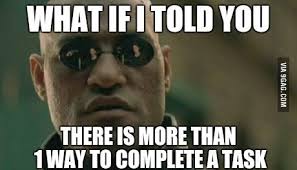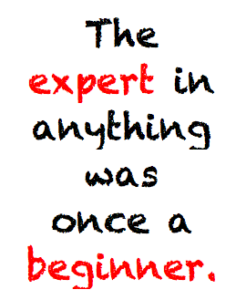I have a hypothesis that most people-management problems can be summarized as a coaching problem.
Stage One: Hiring Fail
Most companies place a strong emphasis on hiring the strongest credentials they can find. I wrote a blog recently discussing the need for hiring Emotional Intelligence over taught credentials. Some companies are starting to get it, but most consider EQ an added bonus if the top credentialed person has it.
I believe this is due to a lack of coaching. Most companies want someone to start as a subject area expert and then manage them in a “sink or swim” model.
Because experts don’t need to be coached, right?

Coaching a new hire takes time, and time is money. Rather than hiring the person who has the character to learn, grow, and drive results over the next several years, companies hire the credentialed person who can hit the ground running from day one with industry-specific competency. Sometimes this also means they hire people who continue down the same mediocre performance they’ve maintained for the last 10 years.
Ask yourself, if someone has been in the same position for 10 years, does this demonstrate a high level of industry knowledge OR lack of mastery in a position with no potential growth?
Stage Two: On-Boarding Fail
What did your last on-boarding look like?
I was once on-boarded into a true sink or swim environment. I was assigned a mentor officially. The mentor that was assigned to me was chosen because she had previously attempted to solve the issues I was now responsible for, but she failed to identify the problem, let alone provide any solutions. By being most familiar though, with years of experience, it was decided she could provide guidance.
Let that idea sit for a moment…
Now, I do commend them for even thinking of assigning a mentor. Most companies make you sit and watch 3 days of HR videos, one day with IT to setup your secure network, and the last day learning about completing paperwork. Then, you are on-boarded and fully informed of the rules. Going forward, it’s on you.

Stage Three: The Coaching Failure
While more and more companies are realizing the importance of coaching, most focus on performance metrics and call it coaching. They look at your data analytics and respond accordingly with either “good job!” or “need improvement” based on the results.
Are results important? Of course!! But results are the responsibility of everyone. Without a commitment to coaching and coachability, the team lacks honesty, drive, and commitment. These characteristics come from open, constructive communication, and professional nurturing.

Stage Four: Micro Management is not Coaching
So stop calling it coaching! Enough said.

Stage Five: It’s Your Fault
We’ve all heard it, “If you are not part of the solution, you are then part of the problem.”
Do you engage in mentoring? Are you open to being coached? Have you advocated for yourself or others? Do you seek to learn?
Dr. Tasha joined us on Taught Leaders to discuss self-awareness, and her research stats were astounding. Most people are extremely aloof to themselves, let alone others. Denial is easier to embrace than reality.

Be apart of the solution: Take our Coaching Survey! Share your experiences below. Seek a mentor. Be a mentor. Hire for coachability.
Be the change you wish to see in the world.

